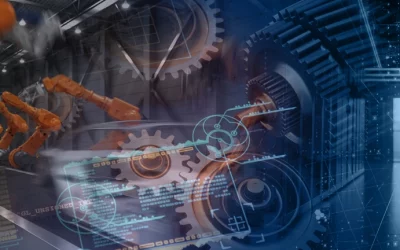The next step to Net Zero: achieving a greener model for the hosting of critical data
Across the UK, people are increasingly conscious of the environmental impact of the products and services they consume in both their personal and professional lives. More and more, organisations delivering critical services are challenged by the Government and the public alike to demonstrate robust green credentials, and tangible evidence of their efforts to operate in a more sustainable manner at all levels.
As a result, numerous organisations are seizing the opportunity to examine every area of their operations and see what optimisations can be made to reduce the consumption of resources, without compromising security or performance, bringing them in line with the Government’s Net Zero objectives, and positioning themselves as responsible, ethical companies in the eyes of those who utilise their services.
With higher and higher volumes of data generated each day – all of which must be stored in full compliance with the applicable regulations – and organisations across numerous sectors accelerating their Cloud transformation journeys, data centre operations represent an ongoing financial, operational, and environmental concern that must be considered as part of this process.
Considering a new breed of data centre
The challenge here is that data centres are inherently energy intensive facilities that consume huge volumes of power each day, and this is only going to increase in the years ahead as higher and higher volumes of data must be stored in a way that guarantees its security and integrity, while ensuring it remains accessible to authorised individuals. Nonetheless, considerable strides have been made in recent years, with a new breed of data centre allowing for environmental concerns to effortlessly co-exist with business ones.
The question then, is how organisations and their technology partners can achieve this ‘best of both worlds’ scenario. There are several key factors that must be considered when evaluating potential hosting facilities:
- The phasing out of fossil fuels in favour of renewable energy sources, such a solar power
- Reducing waste, particularly water consumption, wherever possible
- The implementation of air-cooling systems
- Encouraging biodiversity, i.e. the range of animal and plant life in a given location
- Achieving the lowest possible Power Usage Effectiveness (PUE) – a universally recognised measure of a data centre’s energy efficiency
Facilities such as ARK Data Centres offer a range of opportunities in this regard, with existing users having achieved reductions of as much 75% for electricity usage and 99.9% for CO2 emissions compared to legacy on-premises infrastructure – not just a triumph of sustainability, but tangible savings that can be passed on to customers and end users.
As a trusted technology partner for organisations delivering critical services across the country, Vysiion is an active supporter of this journey, and works closely with innovators such as ARK Data Centres to establish a new standard of best practice when it comes to sustainable data hosting. Whether you are planning a full-scale move to the Cloud or considering a hybrid model, we will work closely with your own teams to ensure the highest level of sustainability is inherent in the design, and can be maintained as your organisation evolves in the years ahead. Just contact us if you’re ready to do your own part as an environmental superhero!
A recent high-profile breach has driven home the need for a new model of OT security
Considering the impact of the recent Volt Typhoon incident and what can be done to optimise the security and resilience of CNI
Secure by design’ must become the new norm for mission-critical infrastructure
Cyber security is a priority as threats grow in frequency, scale, and sophistication. For Operators of Essential Services (OESs), IT/OT convergence and complex compliance demands require a more integrated, ‘secure by design’ approach.
A new model of high-resilience data hosting for tomorrow’s interconnected manufacturing
With manufacturing now officially part of the UK’s CNI sector, what steps can organisations take to bring their operations in line with CNI rigorous standards of security and resilience?
Contact us...
Schedule a Consultation
Contact Vysiion today to discuss your CNI technology needs.



